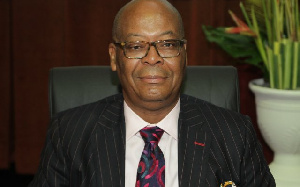ICU applauds NABCO programme
Mr Solomon Kotey, General Secretary of the Industrial and Commercial Workers Union (ICU) has applauded government for introducing the Nation’s Builders Corps (NABCO) programme to tackle the graduate unemployment problem in the country.
He said though the programme was not the panacea to solving the graduate unemployment problem, it could serve as a stop-gap measure for the graduates whilst they looked for permanent jobs in the future.
Mr Kotey made the statement during at an interview with the Ghana News Agency (GNA) in Accra on a number of pressing issues currently affecting the country.
The NABCO is one of the government’s flagship programmes currently being implemented to tackle the problem of graduate unemployment in the country.
Currently, about 200,000 graduates are churned out annually from the various tertiary institutions into the job market which the public institutions are unable to absorb.
Mr Kotey said NABCO programme, if managed well could provide some window of opportunity to graduates to grow their skills set to be able to take up other job opportunities after they had exited the programme.
He said it should be able to develop the entrepreneurship skills of the graduate to be able to set-up on his own.
He acknowledged that the GH 700 allowance to be paid to the graduates may not be enough, but would serve as support system to reduce hardships among the youth in the country.
Speaking on the failure of the National Identification Authority (NIA) to start the registration for the new Ghana Card, Mr Kotey stated that though the hiccup had brought some embarrassment to the country, everything must be done to ensure a smooth take-off this time round on June 8, 2018.
He said though he is not an IT expert, but there should have been a test-run of the system before the beginning of the registration to avoid some of this humiliation.
He also challenged the NIA to ensure date that they had given to roll out the programme was implemented to sustain the public interest in the programme and said though some people had raised issues about the cost of the project, he was not doubting the contract figures presented by the NIA to the public.
On the Free Senior High School (SHS) policy, Mr Kotey stated that though the implementation for the programme had faced some challenges, lessons could be learnt from mistakes to ensure that subsequent rollout of the policy for the second and third years were successful.
He said though government had stated that it was addressing the challenges, there was a lot to be done to ensure continuous running of the programme. He said use of the oil money and other natural resources for the funding of the free SHS did not breach any law, but government could look for a reliable and more sustainable means of funding the programme.
He said though government was providing resources for the implementation of the free SHS programme, parents and others must also support the education of their wards.
On the issue of pirated textiles, Mr Kotey welcomed government policy to designate one port as the entre corridor for all imported textiles into the country in order to check smuggling into the nation and urged the government to double its efforts in clamping down on pirated textiles on the Ghanaian market.
He said the presence of the sub-standard products on the markets was collapsing the Ghanaian textile industry which used to employ thousands of people.
Mr Kotey asked the authorities to extend the anti-pirated textiles taskforce from the ports to the markets, saying that if the taskforce is restricted to the borders they cannot do much to combat the crime.
He said the pirates were copying the original designs and labels of Ghanaian textiles and as such the authorities must do something to stop them. He said the customers were rather patronising the cheap textiles thinking it was the same original product.
Source: ghananewsagency.org





